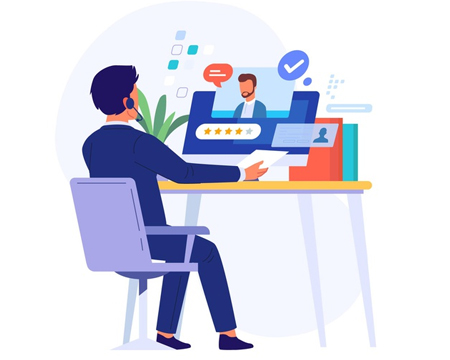Many organizations are moving towards agile/hybrid work. However, before employers reimburse expenses and claims for employee benefits, they should consider the applicable income tax and reporting requirements. This article guides tax considerations when employing reimbursement of expenses.
Broadband Connection
If the employee already has broadband or is upgrading their plan, any reimbursed expenses would be taxable and would be included in a P11D or PAYE (PSA) settlement agreement. This must be the first installation for broadband to be tax-free. The HM Revenue & Customs (HMRC) approach is not very helpful here, so employers often contribute to all payments through payroll, which is entirely tax and social security liable.
Office Team
In the case of a special exemption, the reimbursement of the cost of purchasing office equipment to the employee would be fully, exclusively, and necessarily non-taxable in the exercise of his professional activity. It is not necessary to notify the HMRC. Due to the coronavirus pandemic, no taxes or IAS will be levied on the purchase of home office equipment by employees until April 5, 2022.
If the employee returns the equipment to the employer after the end of the employment relationship, there is no tax burden. If the device is not returned and ownership is transferred, the device becomes a taxable benefit in kind.
Work from Home
Those working from home are eligible for tax and NIC breaks of £ 6 per week or £ 26 per month. The employee can submit the claim themselves or the employer can make payments directly to the employee without taxes or NICs.
Trip
If travel costs are required for a permanent position, this would be a taxable BIK, and if the employee has more than one permanent position, the travel costs for this second job would also be treated as a taxable BIK. There is no taxable BIK if the trip is to a temporary place of work. To be in a permanent position, the HMRC guidelines require that the employee spends more than 40% of his working time there for more than two years. The two years are not a grace period as the expenses are taxable from the first day if you know in advance that they will be over 40%. If the intent is not known in advance, it should be pursued and monitored within two years.
If an employee has a home office contract and, for example, goes to a meeting in the office, the travel costs would be tax-free as long as he does not visit the office regularly and thus violate working hours. by 40%. Guidelines.
Work Late
When employees claim late business expenses, four conditions must be met for the late business expenses to be exempt from tax:
- The employee must work later than usual and at least until 9:00 p.m.
- It happens irregularly.
- At the time of the return journey, no public transport is available or the use of public transport is unreasonable for the employee.
- The employee uses night taxis 60 times or less per year.
Need Help with Your Taxes? Contact Us!
Gifts
A special exception applies to material gifts that are made available to employees for an extended period of service. For this exemption to apply, the employee must have worked for the employer for at least 20 years, the bonus must be less than £ 50 for each year of service and the employee has not been given any other long-term bonus for the past 10 years.
All general gifts to employees can be treated as insignificant benefits that are not taxable / IAS exempt provided the following conditions are met:
- The cost is £ 50 (including VAT) or less.
- The gift is not in cash.
- The gift is not a reward for work or achievement.
- The donation is not a contractual right or an ordinary event.
If the above conditions are not met, the donation will be subject to taxes and IAS.
Annual Events
Employers are not required to report the cost of an annual event as long as the following requirements for exemption are met:
- The cost per head is £ 150 (including VAT) or less.
- The event is open to all permanent employees (at this location/office).
- The event takes place annually, for example at Christmas.
This exception was extended to virtual events during the Covid-19 era.




